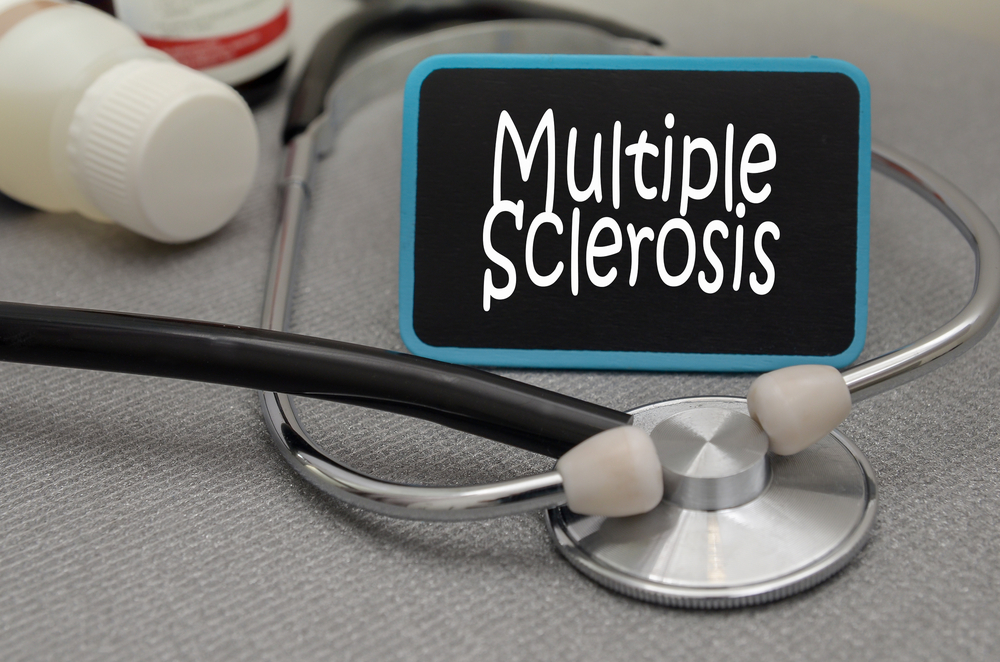RRMS Patients on Rebif Show High Treatment Adherence and Fewer Relapses in Real-World Study

Patients with relapsing-remitting multiple sclerosis (RRMS) on Rebif (interferon beta 1-a), using the RebiSmart autoinjector, have high treatment adherence, despite seasonal weather or temperature fluctuations, as well as fewer relapses over one year, a real-world study reports.
The study, “Seasonal adherence to, and effectiveness of, subcutaneous interferon β-1a administered by RebiSmart in patients with relapsing multiple sclerosis: results of the 1-year, observational GEPAT-SMART study,” was published in the journal BMC Neurology.
Poor adherence to treatment in multiple sclerosis (MS) patients has been associated with a higher rate of relapse, and may also have a negative impact on disease progression.
Rebif, developed by EMD Serono (an arm of the company known as as Merck KGaA outside the U.S. and Canada), is one of the MS treatments that uses interferons as the active ingredient. This group of medications may cause a side effect known as flu-like syndrome, and symptoms such as fever, chills, and headache may be more difficult to tolerate when the weather is hot, as it is during the summer in Mediterranean countries, which could affect treatment adherence.
Interested in MS research? Check out our forums and join the conversation!
A research team in Greece explored if seasonal weather and temperature variations influenced patient adherence to one-year treatment with Rebif, administered via Merck’s RebiSmart autoinjector device.
The multicenter, observational GEPAT-SMART study — funded by Merck Hellas — included adult RRMS patients (18-65 years old), with an Expanded Disability Status Scale (EDSS) score below six (meaning no significant walking impairment), who were being treated with Rebif for up to six weeks before enrollment.
All patients self-administered 44 or 22 micrograms of Rebif under the skin three times weekly for 12 months or until early discontinuation.
After a pre-study assessment, patients were evaluated on the first day (baseline), after six months, and at one year. Reasons for missed injections, relapse frequency, EDSS score, MS-related concomitant medications, vital signs, and adverse events were also recorded.
Adherence rate was defined as 100 multiplied by the number of injections actually administered divided by the planned number of injections over the defined time period — month, season, or year.
A total of 64 patients (50 women, mean age 36.2 years) received at least one dose of Rebif and were then included in the full analysis set. These patients had a mean number of 1.5 relapses during the two years prior to starting treatment with Rebif.
Of these patients, 58 (87.9%) completed the six-month visit, and 47 (71.2%) completed the final 12-month visit.
Results showed that the mean annual adherence was 97.93% in the full analysis set, and 98.32% among participants completing all three study visits, a result consistent across different education levels. No significant monthly or seasonal variations were found.
For the 31 patients who missed at least one dose, the main reasons for non-adherence were forgetting to take the dose (18.8%), viral infection (flu, 15.6%), and not being at home (10.9%).
Reasons for early discontinuation included a patient’s decision to quit treatment (12.5%) and adverse events (6.2%), such as pregnancy, fatigue, malaise, anorexia, pyrexia (fever), and infections.
Treatment with Rebif using RebiSmart was well-tolerated, with no new safety concerns. A total of 62 cases of flu-like syndrome and of related symptoms — headache, malaise, muscle pain — were reported, peaking in the spring, summer, and autumn. Monthly reports of flu-like syndrome did not correlate with monthly adherence. RebiSmart was evaluated as an easy and convenient device to use.
At 12 months, treatment with Rebif was associated with a significant reduction in mean relapses compared with before treatment (0.2 vs. 1.1), matching results from previous studies. Ten patients (21%) showed three-month disability progression — meaning a worse EDSS score by at least 0.5 points — 19 (40%) were stable, and 18 (38%) showed less disability.
The EDSS score was not correlated with pre- or post-treatment relapses, which is in line with other studies suggesting that different biological processes underlie disability and relapses, according to the scientists.
“In conclusion, treatment with Rebif using RebiSmart was well tolerated and adherence exceeded 97% in a real-world setting,” the researchers wrote, noting that the therapy “is effective in decreasing annual relapse rates.”
“There was no association of adherence with specific time periods of the year or geographical areas of Greece, which implies that weather conditions are not among its important determinants,” they said.
Of note, four of the study’s authors are current or former employees of Merck Hellas.






